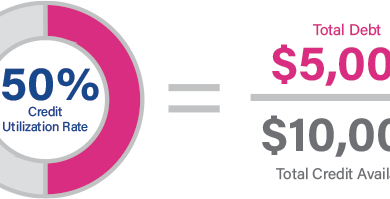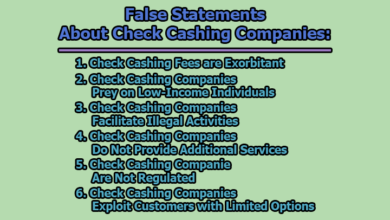Who Do You Contact When It’s Time To Enroll In A Repayment Plan: Expert Advice
When it’s time to enroll in a repayment plan, contact your loan servicer. They manage your loan and assist with payment plans.
Knowing whom to contact can save you time and stress. Enrolling in a repayment plan can feel overwhelming. It’s crucial to know the right person to reach out to. Your loan servicer is your primary contact. They handle your loan and provide guidance on repayment options.
Understanding this can simplify the process and help you manage your finances better. It’s essential to act promptly and stay informed. This will ensure you get the best possible terms for your repayment plan. Whether you have federal or private loans, the first step is always reaching out to your loan servicer. This blog will guide you through the process and provide tips for successful enrollment.
Introduction To Repayment Plans
When it’s time to start repaying your student loans, choosing the right repayment plan is crucial. Repayment plans can help you manage your monthly payments and avoid default. Understanding the different options can seem overwhelming. Let’s break it down.
Why Repayment Plans Are Important
Repayment plans are essential for managing your student loan debt. They help ensure your payments are affordable. You can avoid default by choosing a plan that fits your budget. Defaulting can harm your credit score and result in wage garnishment. So, picking the right plan is key to financial health.
Common Types Of Repayment Plans
There are several repayment plans to consider. The Standard Repayment Plan requires fixed monthly payments for up to 10 years. It’s straightforward but can have higher monthly payments.
The Graduated Repayment Plan starts with lower payments that increase every two years. This plan suits those expecting their income to rise over time.
Income-Driven Repayment Plans base your payments on your income and family size. These include Income-Based Repayment (IBR) and Pay As You Earn (PAYE). These plans can lower your payments and extend your repayment term. They also offer loan forgiveness after 20-25 years of qualifying payments.
Extended Repayment Plans allow you to stretch payments over 25 years. This results in lower monthly payments but more interest over time.
Choosing the right plan depends on your financial situation. Contact your loan servicer to discuss options. They can guide you through the process and help you select the best plan for you.

Credit: www.youtube.com
Federal Student Loan Repayment
Managing federal student loans can be challenging. Understanding your repayment options is crucial. When it’s time to enroll in a repayment plan, you need to know who to contact. This section will guide you through the process of contacting loan servicers and exploring federal resources available.
Contacting Loan Servicers
Your loan servicer is your primary point of contact. They handle billing and other services for your federal student loan. To find your loan servicer, log in to the Federal Student Aid website. Here, you can see detailed information about your loans and servicers.
Once identified, reach out to your loan servicer. They can help you understand your repayment options. They can also assist in enrolling you in a suitable repayment plan. Communication is key. Ensure you keep your contact information up to date with your servicer.
Federal Resources Available
The federal government provides various resources to help with student loan repayment. The Federal Student Aid website is a valuable tool. It offers guidance on different repayment plans, including:
- Standard Repayment Plan: Fixed payments over ten years.
- Graduated Repayment Plan: Payments start low and increase every two years.
- Income-Driven Repayment Plans: Payments based on your income and family size.
Another useful resource is the Income-Driven Repayment Plan Request. This tool helps you apply for income-driven repayment plans. Additionally, the Deferment and Forbearance options provide temporary relief if you encounter financial hardship.
Using these resources can make managing your student loan debt more manageable. Remember, the key is to stay informed and proactive in managing your loans.
Private Student Loan Repayment
Private student loans can be a burden. The interest rates are often higher than federal loans. Finding the right repayment plan is crucial. This can help manage monthly payments better. But who do you contact when it’s time to enroll in a repayment plan? Let’s explore the steps you need to take.
Reaching Out To Lenders
Your first step is to contact your loan lender. Each private lender has different policies. You may have to call, email, or visit their website. Check your loan documents for contact information.
Prepare your questions in advance. Ask about available repayment plans. Inquire about interest rates and term lengths. This information will help you make an informed decision.
| Contact Method | Details |
|---|---|
| Phone | Speak directly to a representative. Get answers in real time. |
| Send detailed questions. Keep a record of responses. | |
| Website | Find FAQs and contact forms. Some lenders offer live chat. |
Negotiating Terms
After contacting your lender, you may have options to negotiate terms. Explain your financial situation. Be honest about your ability to pay.
Here are some key points to consider:
- Interest Rate Reduction: Ask if they can lower your interest rate.
- Extended Repayment Terms: Request a longer repayment period to lower monthly payments.
- Income-Driven Repayment: See if they offer plans based on your income.
Negotiating terms can provide significant relief. Make sure you understand all the conditions before agreeing. Always read the fine print.
Keep records of all communications. Save emails and note phone call details. This will help if there are any disputes later.
Employer Assistance Programs
Employer Assistance Programs can be a valuable resource when enrolling in a repayment plan. Many employers offer these programs to help employees manage their student loans. This assistance can make the process smoother and less stressful. Knowing how to leverage these programs can save you both time and money.
Checking Eligibility
First, check if your employer offers an assistance program. Some companies provide this benefit as part of their package. Ask your HR department for details. They can guide you through the eligibility requirements. Usually, these programs are available to full-time employees.
Next, review the terms of the program. Each employer has different rules. Some may cover a portion of your loan payments. Others might offer financial counseling. Make sure you understand what is offered. This can help you make an informed decision.
How Employers Can Help
Employers can assist in several ways. Some companies offer direct payments to your loan servicer. This reduces your monthly payment. Others might provide a lump sum to pay off a portion of your loan. This can reduce your overall debt.
Another way employers can help is through financial education. Many programs include workshops or one-on-one counseling. These resources can teach you how to manage your loans. They can also help you plan for the future. Knowledge is power, and understanding your options can make a big difference.
Additionally, some employers offer incentives for participating in their programs. This can include bonuses or additional benefits. These incentives can make it even more attractive to enroll. Always ask about any potential perks.
Financial Advisors
Financial advisors can be invaluable when enrolling in a repayment plan. Their expertise helps navigate the complexities of financial decisions. They offer personalized guidance based on your unique situation. With their help, you can make informed choices about repayment options.
Finding The Right Advisor
Not all financial advisors are the same. Some specialize in debt management while others focus on investment strategies. Finding the right advisor is crucial. Research their background and areas of expertise. Look for advisors with experience in repayment plans.
Check credentials and certifications. Certified Financial Planners (CFPs) have rigorous training. They adhere to strict ethical standards. Ask for recommendations from friends or family. Read online reviews to gauge their reputation. Schedule initial consultations to assess their fit for your needs.
Questions To Ask
Prepare a list of questions before meeting a financial advisor. This ensures you cover all important topics. Ask about their experience with repayment plans. Inquire about their approach to managing debt. Understand their fee structure.
Ask how they tailor plans to individual needs. Request examples of past clients in similar situations. Clarify their availability for ongoing support. Understand their communication methods. This helps ensure they are accessible when needed.
Also, ask about their success rate. This can give you confidence in their abilities. Ensure they are transparent about potential outcomes. This helps set realistic expectations.

Credit: www.instagram.com
Non-profit Organizations
Non-profit organizations offer valuable support when enrolling in a repayment plan. These organizations help borrowers manage debt and provide guidance. They do not charge high fees like some for-profit companies. Their services are often free or low-cost. This makes them an excellent resource for those in financial need.
Services Offered
Non-profit organizations offer various services. They provide financial counseling to understand your debt situation. Counselors help you create a budget. They also assist in negotiating with creditors. Some organizations offer educational workshops. These workshops teach financial literacy and money management skills.
How To Get Support
Getting support from non-profit organizations is easy. Start by researching local non-profits online. Look for organizations with good reviews. Contact them through their website or phone. Schedule an appointment with a financial counselor. Bring all your financial documents to the meeting. The counselor will review your situation and suggest options. Follow their advice to enroll in a repayment plan.
Legal Aid Services
Legal aid services can be a valuable resource when enrolling in a repayment plan. These services offer free or low-cost legal assistance to those who need help understanding their options. They provide support to ensure individuals make informed decisions about their financial future.
When To Seek Legal Help
Seek legal help if you don’t understand your repayment plan options. A lawyer can help you understand complex documents. They can also explain the terms and conditions of each plan.
Legal aid is crucial if you’re facing wage garnishment or other legal actions. Professional advice can help protect your rights and finances. Do not delay contacting a legal expert if you are in such a situation.
Finding Legal Resources
Find legal resources through local legal aid offices. These offices often have staff who specialize in financial and debt issues. You can also contact national organizations for help.
Online directories can help locate legal aid services in your area. Websites like the Legal Services Corporation offer comprehensive lists. Additionally, local bar associations often provide resources and referrals.
Community centers may also offer free legal clinics. These clinics provide brief advice sessions with a lawyer. They can be a good starting point for understanding your repayment options.
Remember, legal aid services are there to help you navigate the complexities of repayment plans. Utilize these resources to make the best financial decisions for your future.

Credit: m.facebook.com
Frequently Asked Questions
Who Helps With Repayment Plan Enrollment?
Your loan servicer assists with repayment plan enrollment. Contact them directly for guidance and options tailored to your situation.
What Documents Are Needed For Repayment Plan?
Typically, you need income proof and family size details. Check with your loan servicer for specific requirements and forms.
When Should You Contact Your Loan Servicer?
Contact your loan servicer as soon as possible. Early communication helps you understand options and avoid missed payments.
How To Change Your Repayment Plan?
To change your repayment plan, contact your loan servicer. They will provide instructions and necessary forms for the process.
Conclusion
Enrolling in a repayment plan can feel overwhelming. Start by contacting your loan servicer. They can provide guidance and options suited for you. Check their website for contact details. You can also call or email them directly. Prepare your loan information beforehand.
This will make the process smoother. Don’t hesitate to ask questions. Understanding your plan is crucial. Be proactive and stay informed. It ensures you make the best financial decisions. Remember, help is just a call or click away. Take control of your loan repayments today.



